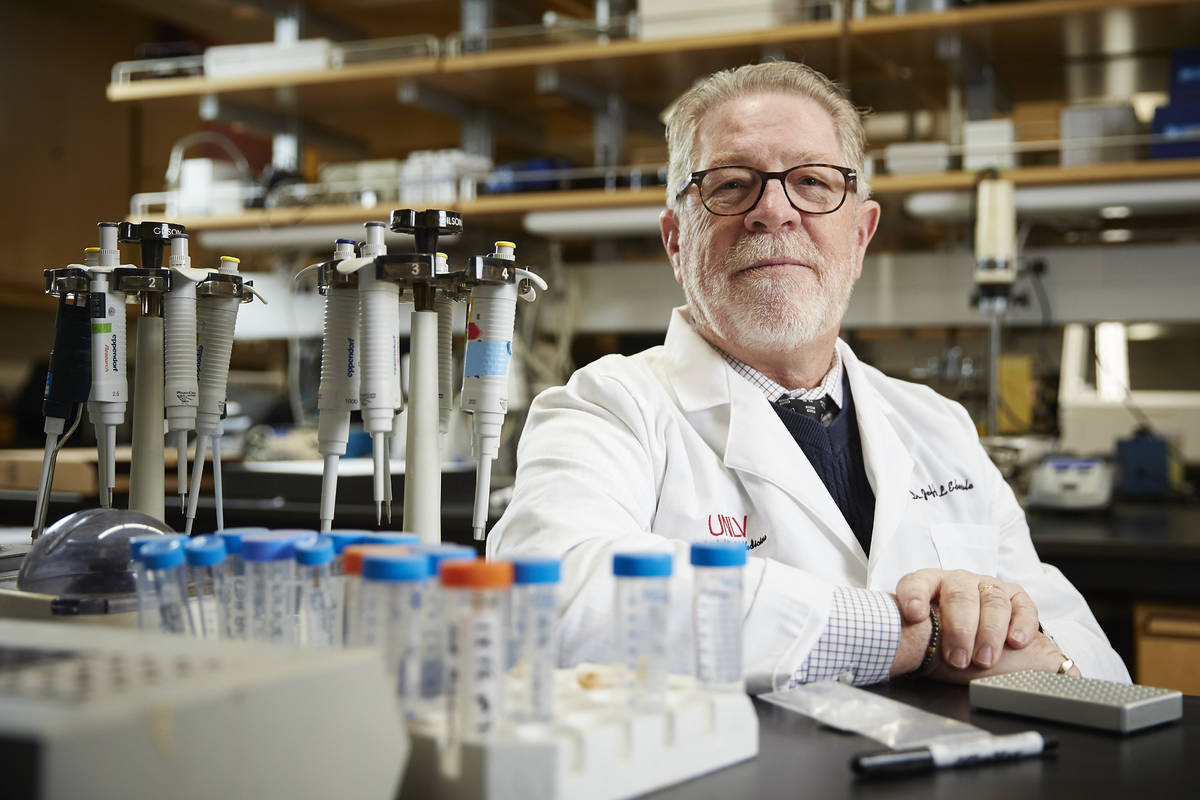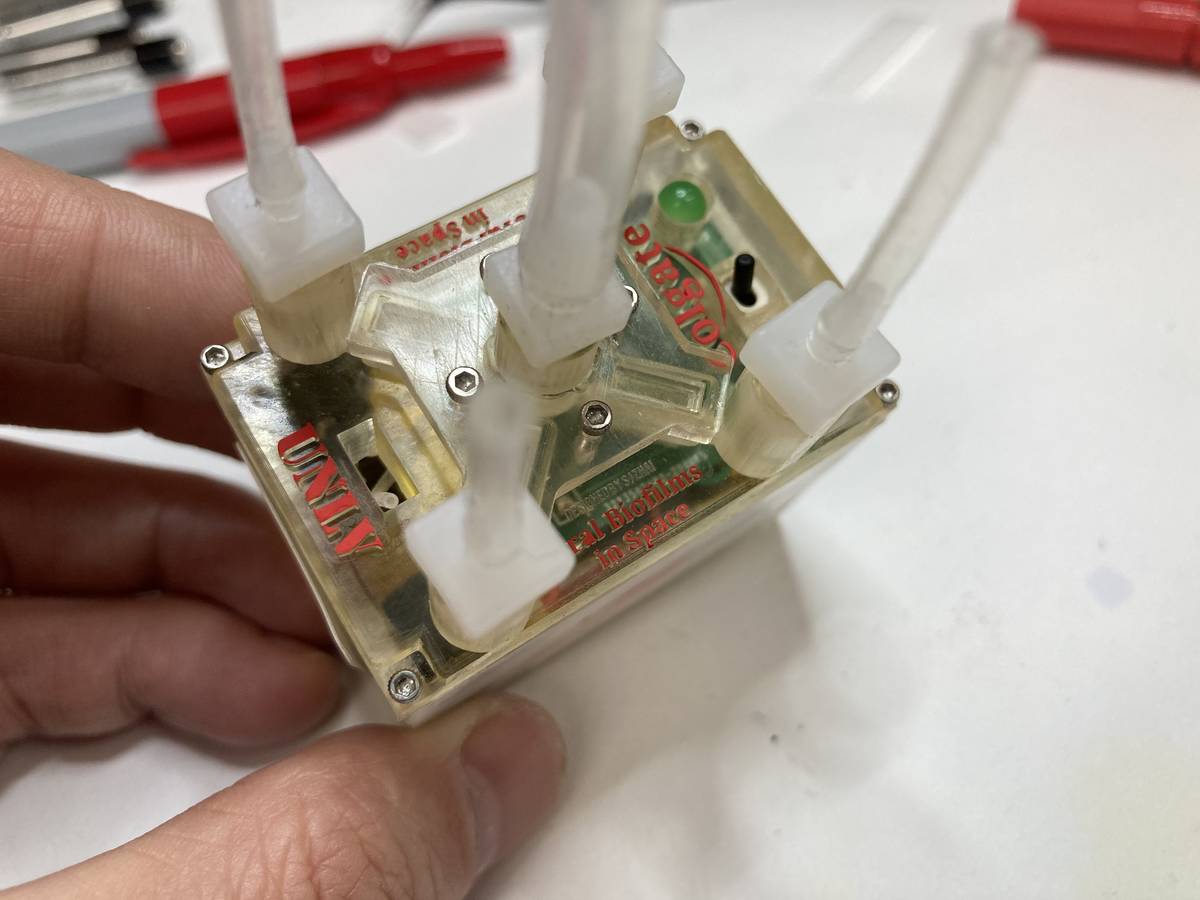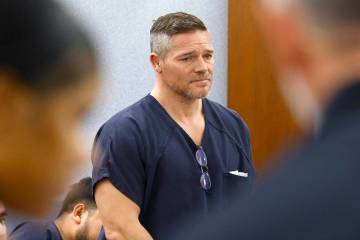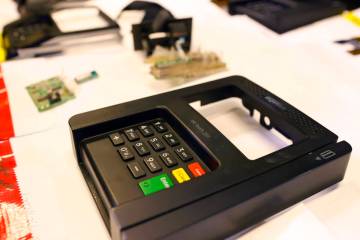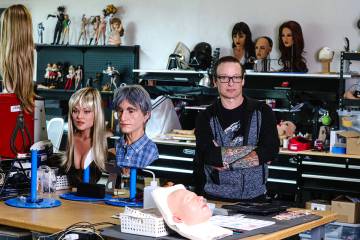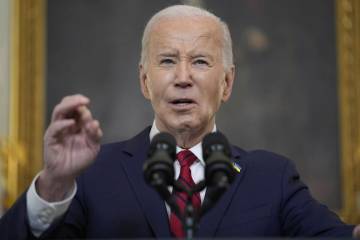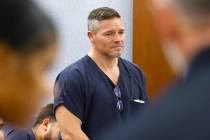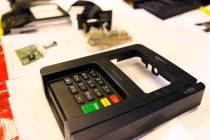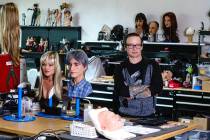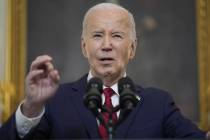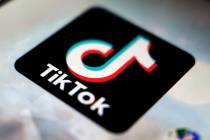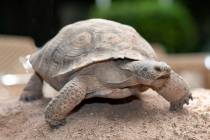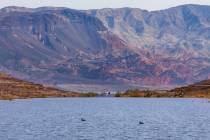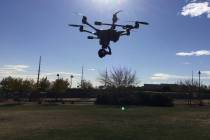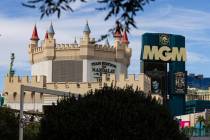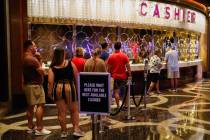Saliva in space? UNLV samples will be launched on a SpaceX rocket
Saliva and oral bacteria from 30 UNLV dental clinic patients will blast off Thursday in a rocket bound for the International Space Station.
UNLV researchers from the Howard R. Hughes College of Engineering and School of Dental Medicine are partnering with NASA and Colgate-Palmolive to study the growth of oral bacteria in space and to see if Colgate’s oral care products are effective in a microgravity environment.
Test kits created by the university will be on board the SpaceX CRS-22, which will launch from NASA’s Kennedy Space Center in Florida for a cargo resupply mission.
Two of the UNLV researchers involved with the project — Jeffrey Ebersole, associate dean for research at the School of Dental Medicine, and mechanical engineering research scientist Shengjie (Patrick) Zhai — will be on site Thursday for the rocket launch.
Ebersole said Wednesday by phone that he never imagined in his wildest dreams he’d be in Florida watching a rocket launch. “It’s pretty cool.”
Zhai said his childhood dream was to become an astronaut. “However, you know, I cannot do that. Tomorrow, my dream has come true in another way.”
It’s the first private sector “oral care experiment” being sent to the International Space Station, Colgate-Palmolive said in a May 25 news release.
The company designed the experiment, and it’s the first of several research projects in space in partnership with the International Space Station U.S. National Laboratory.
The experiment will “simulate bacterial growth on a tooth-like surface,” Colgate-Palmolive said in its release.
The test kits created by UNLV engineers include 3D-printed microfluidic pump devices that are battery powered.
The experiment will help scientists learn about “the growth and metabolism of oral biofilms, which in our mouths take the form of dental plaque that can lead to cavities and gum disease,” according to the release.
“Colgate’s purpose is to reimagine a healthier future for all people, their pets and the planet,” Pat Verduin, chief technology officer at Colgate-Palmolive, said in the release. “We constantly strive to push the limits of research and development — and now we’re pushing even further, into space. Our unique partnership with ISS National Lab and the University of Nevada-Las Vegas will help us go beyond what’s expected, beyond what’s known and even beyond our planet to test and accelerate the science of oral health.”
The crew aboard the International Space Station is slated to start experiments on the samples Monday, Ebersole said.
Colgate-Palmolive and UNLV researchers went through a substantial amount of training to prepare for participating in live video feeds with the crew as they’re doing experiments in order to answer questions that may arise, Ebersole said.
After about a month in space, the samples will be returned to Earth. They’ll be analyzed and compared to bacteria samples that have remained on Earth.
Sample analysis will be done by UNLV — physically in the university’s laboratories and by using commercial partners. The process, Ebersole said, will probably take about 60 days.
UNLV put together a proposal for the experiment about three years ago and was selected after a rigorous review process.
Alabama-based Teledyne Brown Engineering — which has a relationship with UNLV as an engineering mentoring group — notified the university about the opportunity to submit a proposal, Ebersole said. A payload specialist team from the engineering company is working with Colgate-Palmolive and UNLV on the project.
Researchers faced delays during the COVID-19 pandemic. For instance, scientists weren’t able to access their laboratories for about five months at UNLV, Ebersole said.
UNLV dental researchers John Gallob and Lacey Rahmig collected samples from 30 patients who were coming in for different types of dental care already and consented to participate in the research project.
Patients were broken into three groups: 10 “orally healthy” people, 10 with a cavity and 10 with gum disease. Samples were collected using a dental tool called a scaler.
The last sample from a patient was collected in late February 2020 just before “all hell broke loose” with the COVID-19 pandemic, Ebersole said. The samples were stored frozen for almost a year.
Zhai and UNLV engineering professor Hui Zhao developed the test kits. A 3D printer was used to mass-produce the kits, Zhai said, and the final product had to pass certain NASA requirements.
The kits will allow for automatic operation in space and don’t require any human intervention.
Developing the test kits during the pandemic was a challenge, Ebersole said. “Supply chains were broken. It was not easy to get the things we needed.”
Contact Julie Wootton-Greener at jgreener@reviewjournal.com or 702-387-2921. Follow @julieswootton on Twitter.
How to watch
The launch of SpaceX CRS-22 is expected around 10:29 a.m. Pacific time Thursday. It can be viewed at nasa.gov/nasalive.



